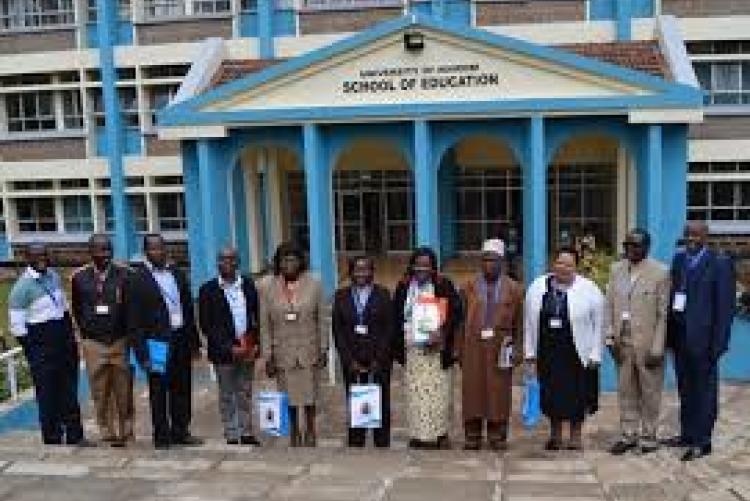As Confucius observed, “A man who does not think and plan long ahead, will find trouble right at his door”. The message here is that planning is of vital importance in every walk of life. It is needed in teaching, organization, administration, governance, and even in business. Consequently, planning in education is an extremely important activity as it forms the basis of all programs of quantitative and qualitative improvement
Overview
Philosophy
The programmes philosophy is anchored on the belief that theory and practice must be combined in a “hands-on” learning environment that focuses on experiential learning. The programme is demand-driven to meet the increasing need for competent educational managers, planners, economists, and curriculum developers for the education sector.
Rationale
The programme has been developed in accordance with the policy requirements of the Ministry of Education for teacher education as stipulated in Session Paper No. 1 of 2019. The curriculum is updated to meet the needs of the various stakeholders and synchronize them with Kenya Vision 2030; Medium Term Plan (2022-2027); the Strategic Plan of the Ministry of Education; the Sector Performance Standards 2009–2030; other education sector strategies; the Constitution of Kenya (2010); and the Kenya Universities Act No. 42 [(2012),(Revised 2016)], Agenda 2063 and CESA 2016 – 2025 of the African Union and Goal 4 of the Sustainable Development Goals (SDGs).
The objectives are to:
- Acquire the necessary knowledge, skills, and attitudes in the areas of Educational Administration, Leadership and Management, Curriculum Studies, Educational Planning, Economics of Education, Education in Emergencies and Corporate Governance.
- Acquire a deeper understanding of the complexities of planning, developing and managing educational systems.
- Develop skills and attitudes appropriate to Corporate Governance and consequently exhibit leadership skills that are appropriate to the management of educational institutions at various levels.
- Analyze the multifaceted content of emergencies and formulate evidence - based solutions to emergency case scenarios.
- Develop professionalism in the practice of managing curriculum.
- Design and carry out research in areas of specialization.
Structure
Mode of Delivery
Module1.Physical classes at Kikuyu Campus and Kenya Science Campus
Module 2. Nairobi Evening and Outreach - Virtual Classes
Nairobi – Day: Physical Classes at Kikuyu campus
Face to Face Reflective learning; Open, distance and e-learning (ODEL) mode; case study analyses, presentations, assignments, discussions, tutorials, group projects, collaborative online learning, field and institutional visits
Admission Requirements
Admission Requirements
The common regulations for master’s degree in all faculties and schools of the University shall apply.
The following shall be eligible for admission into the degree of Master of Education programme:
a) A holder of Bachelor of Education degree with at least an Upper Second-Class honours degree of the University of Nairobi or equivalent qualifications from other universities recognized by Senate.
b) A holder of Bachelor of Education degree with at least a Lower Second-Class honours or equivalent qualifications from other universities recognized by Senate with two years working experience.
c) A holder of any other bachelor’s degree of the University of Nairobi with at least Second-Class honours and a/Postgraduate Diploma in Education (PGDE) or equivalent qualifications from universities recognized by Senate.
d) Applicants who wish to specialize in economics of education and Educational planning should have had prior exposure to economics and economics related subjects at undergraduate level. However, for those wishing to specialize in Educational Planning, a strong background in mathematics at undergraduate level.
Careers
Carreer Opportunities
- Internships or Practicum Placements: Educational institutions, government agencies, non-profit organizations, and educational consulting firms often offer internships or practicum placements for students pursuing degrees in educational management, policy, or curriculum studies. These opportunities allow students to gain hands-on experience in real-world educational settings, working alongside professionals in the field.
- Research Assistantships: Students interested in research within educational management, policy, and curriculum studies may have the opportunity to work as research assistants for faculty members or research centers. This involvement provides valuable experience in conducting literature reviews, data collection and analysis, and contributing to scholarly publications.
- Fieldwork and Observational Studies: Attachment opportunities may involve fieldwork or observational studies where students have the chance to observe and analyze educational institutions, policies, or curriculum implementation processes in action. This can provide valuable insights into the practical challenges and dynamics of educational systems.
- Professional Development Workshops and Seminars: Educational management, policy, and curriculum studies often involve attending workshops, seminars, and conferences where professionals share insights, best practices, and the latest research findings. These events offer attachment opportunities for students to network with experts in the field and stay updated on emerging trends and issues.
- Collaborative Projects with Educational Institutions or Agencies: Students may have the opportunity to collaborate with educational institutions, government agencies, or community organizations on projects related to educational management, policy development, or curriculum design. These collaborative efforts can provide practical experience in applying theoretical knowledge to real-world challenges and contribute to positive change within educational systems.
- Policy Analysis and Advocacy Initiatives: Attachment opportunities may involve participating in policy analysis and advocacy initiatives focused on educational reform, equity, and access. Students can engage in research, policy brief development, and advocacy campaigns aimed at influencing educational policies and practices at local, national, or international levels

